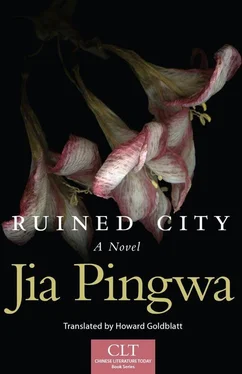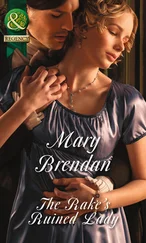Though what he was saying seemed absurd and preposterous, his listeners weren’t sure what to think of him, since he peppered his talk with modern technical terms. “What is a philosopher?” he demanded. “And what is a man of letters?”
No one had an answer, so he smiled. “It’s simple. A philosopher knows everything before everyone else, a shepherd sent by God to watch over the others. As for you, the writers and poets, you are at best sheepherding dogs.”
“The master is a font of knowledge,” someone in the audience said. “You’re so different from others we’ve met before, who could only spout nonsense and crazy ideas.”
“Don’t call me master. I’m just my master’s disciple. There’s nothing I loathe more than those who claim to be qigong practitioners but actually deceive others with their tricks. Do they know qigong? They do. But qigong is in the lowest rank of our field of practice. An elementary school student has a fountain pen in his pocket and a middle-school student has two, but can we argue that the more you know, the more fountain pens you need in your pocket? Writers like you have no pens, so what do you call those who have three or four pens in their pockets? Pen repairers! Chinese traditions are the best in the world, but sadly, the heirs to these traditions have a most annoying problem, and that is boasting. As the saying goes, He who is all talk does nothing, he who does things makes no noise. The true masters have a vapid appearance but great intelligence. Nowadays in Xijing there are many magic power sacks and magic belts. Television ads peddle products to strengthen men’s kidneys and increase their sexual prowess, or to cure women’s ailments they cannot talk about. In the parks and along the city wall, you see people breaking stone steles with their heads and splitting bricks with their bare hands, but can that solve humanity’s problems? Those are insignificant skills that real men would not deign to practice.”
The others turned to look at Meng Yunfang, who was red in the face from embarrassment. “What you’re saying is all well and good,” he said, “but too lofty and distant, for we are just ordinary people who would like to know what will happen to Xijing in the future.”
The man was quiet, as if unable to extract himself from the scene he had just set. After a moment he finally said, “I don’t possess the power to know that.” That was met by sighs all around. “But,” he continued, “I can receive messages from outer space. Let’s give it a try.” Scrunching up his shoulders and puffing out his chest, he relaxed, took off his shoes and belt, and sat in the lotus position, head down. Making the shape of a lotus flower with his fingers, he randomly rattled off a string of numbers for about a quarter of an hour before opening his eyes. “There will be a drought in Xijing. Are there any signs of that?”
“Well, we’ve heard that Xijing once had eight rivers, but only four are left. The factories in the western suburb often have to cease operations due to water shortages, while residents in the northwest could not get any water to the second floor all summer long. Everyone lives in multistory modern buildings, and yet they must keep storage vats for water that will run for a few minutes only in the middle of the night.”
The man’s face came alive. “That’s it.” He asked everyone to face north, avoiding the south, the direction of Mount Zhongnan, where masters in the mountain would interfere with their field of qi. Then he continued to receive transmissions from outer space before blurting out something that scared them out of their wits: “All of Xijing will sink in a few years.”
Zhuang Zhidie, who had been listening attentively, fidgeted, as the man was sounding increasingly outlandish. Using a bathroom visit as an excuse, he walked out; when he heard two girls in the next room giggling softly, he went in to ask, “What are you two silly girls laughing at?”
“Xiaohong passed gas when the master was chanting his incantation. She was afraid of making a noise, so she forced it to come out real slow in tiny bits. It was so funny, we had to run out here to laugh.”
The second girl blushed and put her hand over her friend’s mouth. “Don’t listen to Cuiling. She’s full of nonsense.”
“Don’t overreact, Xiaohong. It’s just a fart in the wind,” Zhuang said, sending the girls into another laughing fit. With a straight face he looked out the window. Dusk was descending.
Their giggling finally subsiding, the girls walked up to the window. “You’re so funny, Zhuang Laoshi. We recognized you but didn’t dare approach you,” one of them said. “We came to listen to you talk about art, but the master monopolized everything.”
“Listen to me talk about art?” Zhuang said. “You two are the essence of art.” He leaned against the window to gaze at the night scene outside. The distant streets and lanes were brightly lit, and people could be heard talking, but the large area to the right was shrouded in darkness and completely silent. One of the girls asked him what the area was. Zhuang told them it was the Clear Void Nunnery, where the lights were turned off when the worshippers left. The dozen or so nuns had probably gone to bed a while ago.
“What’s that?” Xiaohong yelled out.
Zhuang saw a red light flicker in the dark; it went out but flickered again. He had no idea what it was, and the girls were frightened, saying it was a will-o’-the-wisp. The others came out and asked the master to take a look. He did so, then asked about the place. Meng told him it was a temple and that the red flicker seemed to be coming from the bamboo grove behind it. But the grove was usually deserted, even in broad daylight. No more red flickers came. “I said too much today without knowing there was a temple nearby,” the master said. “It must be an ancient one, with buried Buddhist relics reacting to my talk.” Meng said the temple, built in the Tang dynasty, indeed had a long history, but he knew of no objects there, except for Ma Lingxu’s grave marker, which had been dug up during the renovations. “Could it be her spirit?” The master made a gesture in the form of a lotus flower before saying there might be more red flickers, but he could not stay long. He left.
The others went back inside, while Zhuang stayed with the girls to gaze out the window. There was another red flicker. Saying that the master was right in his prediction, Cuiling was so frightened she wanted to close the window. Just then it flickered again, and a large red light drifted forward to meet with the first red dot. “How many did you get?” a shrill voice asked. “Why did it take so long?” The larger red flicker drifted away, followed by a woman’s crisp laughter. “What Buddhist relics?” Zhuang grumbled. “It’s the nuns out catching fireflies.” Inside, no one laughed as they stared at each other, while doubts about what the master had said crept in.
“We might gain some inspiration from him,” Meng said.
“So who do you plan to invite for the next lecture, the shepherd dogs?” Zhuang asked. Everyone had a good laugh before going their separate ways. Zhuang and Meng decided to spend the night there. As they were getting ready for bed, Zhuang said, “Huiming must know a lot about these things. For a while, you were talking about inviting her, but no more. How come?”
“Every time I went to see her, the son of the chairman of the People’s Consultative Conference was with her having tea. She was aloof. When I asked how she’d come to know the Number Two Knave, she told me not to use that awful term. She even said she would introduce me to Knaves One, Three, and Four. Why would I want to know them?”
“You’re jealous?” Zhuang laughed. “That’s better, actually. I was worried that the city might have one less real nun and gain a powerful woman if you spent too much time there.”
Читать дальше


![Matthew Vincent - [you] Ruined It for Everyone!](/books/216429/matthew-vincent-you-ruined-it-for-everyone-thumb.webp)









